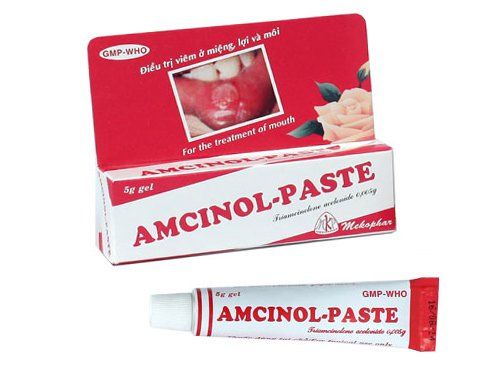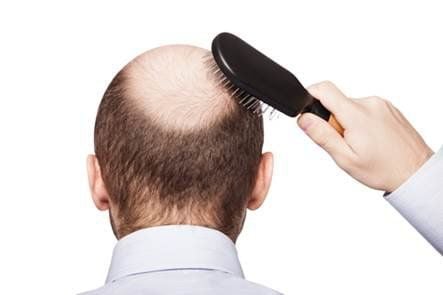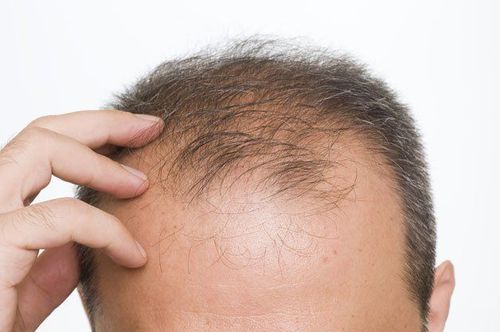This is an automatically translated article.
Chemotherapy affects the growth of hair follicles in the degenerative stage, causing the hair roots to not grow normally, prone to breakage. Although hair loss caused by chemotherapy of the entire scalp cannot be prevented, it will go away when treatment is stopped.
1. Why can hair loss due to chemical treatment?
Patients undergoing chemotherapy for cancer often experience hair loss because:Hair loss is an unwanted effect of chemotherapy / anticancer drugs. Hair loss depends on the type of chemical, dose, and route of administration. Usually occurs from the 2nd and 3rd week or several cycles after chemotherapy. Due to the radiation dose, the radiation method after radiation therapy, the patient lost in the irradiated area.
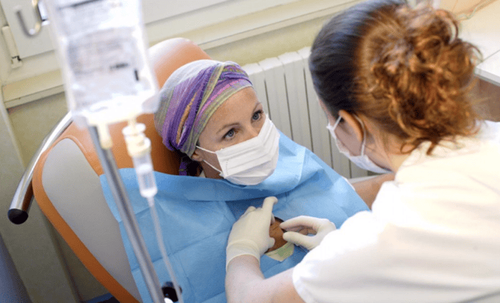
Rụng tóc là một tác dụng không mong muốn của hóa trị liệu ung thư
2. Is hair loss preventable?
In most cases it is not preventable.
3. Does the hair grow back?
At the end of the chemical treatment, the hair will grow back. The growth may not be as it was at the beginning, it may curl more or become grayer. It can take 6 to 12 months for the hair to regrow completely.
4. What do I do when I lose my hair?
Talk to a doctor or nurse for specific advice on the problem and help the patient deal with it. Wear suitable wigs, hats and headscarves, without damaging the scalp. Avoid getting hurt or sunburned: Sunshade, sunscreen, soft pillow...
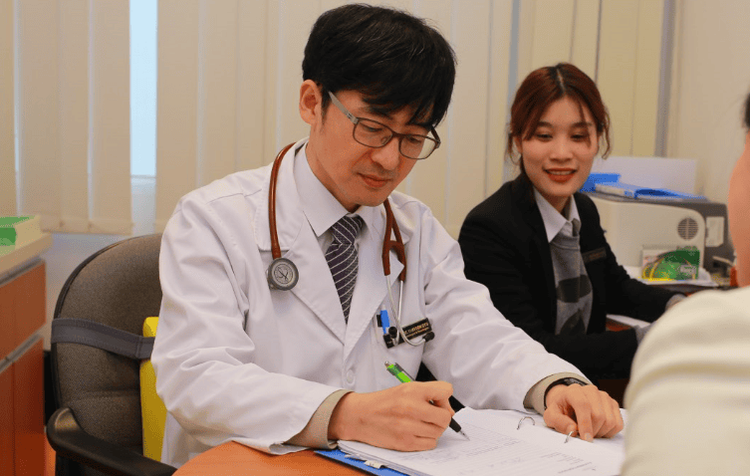
Bệnh nhân có thể trao đổi với bác sỹ hoặc chuyên gia y tế nếu cần
5. Before hair loss, how to take care of the scalp?
Use a mild shampoo, pat dry (do not rub vigorously) and use a soft comb. Avoid using curling irons, blow dryers, curlers, hair bands or hair pins Avoid using hairspray, hair dyes, or other chemicals Cut your hair short or shave your head before it falls out or when beginning to lose hair Buy wigs, headscarves, hats, or other head coverings to use after your hair loss.
6. What should be done to take care of when the hair grows back?
Wash your hair no more than 2 times a week. Gently massage the scalp to remove dandruff. Be gentle when doing hair. Do not use a hair dryer much and brush vigorously. Avoid chemicals or hair dyes until it grows back completely.
7. Do I feel sad, angry or worried about hair loss?
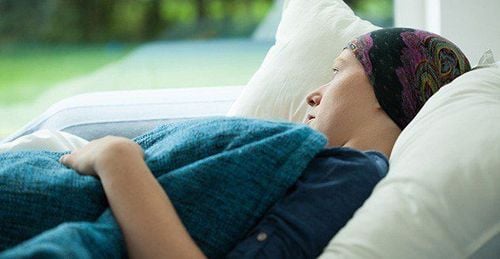
Bệnh nhân cần học cách để thích nghi với nó
This feeling is normal, the patient needs to learn to adapt to it. The person may feel more comfortable talking about these feelings with someone else, or can talk to a doctor, nurse, friend, loved one, or a psychologist if needed.
Please dial HOTLINE for more information or register for an appointment HERE. Download MyVinmec app to make appointments faster and to manage your bookings easily.




